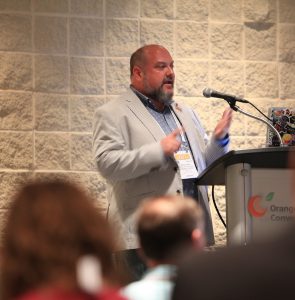BOSTON—The annual list of the most Outstanding Business Reference Sources was announced by the Reference and User Services Association (RUSA) Book and Media Awards Ceremony at the American Library Association’s Midwinter Meeting.
Each year, the Business Reference Sources Committee of BRASS selects the outstanding business reference sources published since May of the previous year. This year, the committee reviewed 20 entries; of these, two were designated as “Outstanding,” seven were selected as “Notable,” and one was designated as a “Significant New Edition.”
To qualify for the award, the title must meet the conventional definition of reference: a work compiled specifically to supply information on a certain subject or group of subjects in a form that will facilitate its ease of use. With print reference materials being used less heavily in most cases, these works stood out based on their content, quality, and utility. The works are examined for the following: authority and reputation of the publisher, author, or editor; accuracy; appropriate bibliography; organization; comprehensiveness; value of the content; currency; unique addition; ease of use for the intended purpose; quality and accuracy of index; and quality and usefulness of graphics and illustrations. Each year, more electronic reference titles are published. Additional criteria for electronic reference titles are accuracy of links, search features, stability of content and graphic design. Works selected must be suitable for medium to large-size academic and public libraries.
The list includes:
Outstanding
Handbook of Digital Currency: Bitcoin, Innovation, Financial Instruments, and Big Data. Edited by David Lee Kuo Cheun. London: Academic Press, 2015.
Dictionary of Corporate Social Responsibility : CSR, Sustainability, Ethics and Governance. Samuel O. Idowu, editor-in-chief ; Nicholas Capaldi, Matthias S. Fifka, Liangrong Zu, René Schmidpeter, co-editors. Springer International Publishing, 2015.
Notable
The Oxford Handbook of Gender in Organizations. Edited by Savita Kumra, Ruth Simpson, and Ronald J. Burke. Oxford, UK: Oxford University Press, 2014.
The Encyclopedia of the Industrial Revolution in World History. Edited by Kenneth E. Hendrickson III. Rowan & Littlefield.
Disaster Recovery, Crisis Response, and Business Continuity: A Management Desk Reference. By Jamie Watters. Apress, 2013.
Guide to Reference in Business and Economics. Edited by Steven W. Sowards and Elisabeth Leonard. Chicago: American Library Association, 2014.
Handbook of Emerging Multinational Corporations. Edited by Mehmet Demirbag and Attila Yaprak. Cheltanham, UK and Northampton, MA: Edward Elgar Publishing, 2015.
The Oxford Handbook of Management Theorists. Edited by Morgen Witzel and Malcolm Warner. Oxford: Oxford University Press, 2013.
The Investment Assets Handbook: A Definitive Practical Guide to Asset Classes. By Yoram Lustig. Harriman House Ltd., 2014.
Significant New Edition
Gower handbook of project management, 5th ed. Edited by Rodney Turner. Gower Publishing, Inc.
The Outstanding Business Reference Sources is produced by the BRASS Reference Resources Committee. Contributing members include Jordan Nielsen, selections editor; Ed Hahn, chair; Naomi Lederer nominations coordinator; Erin Wachowicz; Anthony Raymond; Glenn McGuigan; Valerie Freeman; and Suzanne Freeman.
The Reference and User Services Association (RUSA), a division of the American Library Association, represents librarians and library staff in the fields of reference, specialized reference, collection development, readers’ advisory and resource sharing. RUSA is the foremost organization of reference and information professionals who make the connections between people and the information sources, services, and collection materials they need. Learn more about the association at www.ala.org/rusa.


